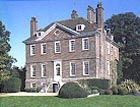House prices rise for third month running
The latest index from Nationwide found House prices on the rise for the third month in a row, and says 2009 may see prices rise overall


The price of an average property rose by 1.3% in July, according to the latest Nationwide house price report. In addition to this, the three-month-on-three-month rate of change is at the highest level it’s been since February 2007. Prices remain 6.2% lower than they were this time last year, but as the month-on-month figures continue to come in for the rest of the year, the report states that steep falls at the end of 2008 may make 2009 figures look even better. ‘There is now a reasonable chance that prices could end the year slightly higher than where they started,’ Martin Gahbauer, Nationwide’s chief economist, stated. ‘Only a few months ago, such an outcome would have appeared unthinkable,’ he continued.
Although these results seem surprising, the report points out that other indicators are also bouncing back to support a slow rise in transactions, although it seems foolish to expect the current rate of growth to continue in a straight line. ‘One should not underestimate the impact over time of high unemployment,’ continued Mr Gahbauer. ‘This has implications both for buyer confidence and the financial pressure on existing owners to sell. It is unlikely, therefore, that price increases can be sustained for long at the very strong rate observed over the last few months.’
* For more news stories like this every week subscribe and save
Simon Rubinsohn, RICS chief economist agreed that this growth may not be sustainable throughout the rest of 2009: ‘RICS believes that the recent support for prices is to a large extent a sign of a lack of supply of properties. Whether they may be described as reluctant landlords or investors, many homeowners wanting to move are hanging on to their existing homes in the knowledge that servicing costs are low and can be covered by rental income even in an environment in which yields are slipping. This could remain an important crutch for the market in the near term,’ he said.
Sign up for the Country Life Newsletter
Exquisite houses, the beauty of Nature, and how to get the most from your life, straight to your inbox.
-
 How many puppies in the average litter? Country Life Quiz of the Day
How many puppies in the average litter? Country Life Quiz of the DayPlus a 1960s house, Hollywood's most famous cavewoman and more in Friday's quiz.
By Toby Keel Published
-
 Love, sex and death: Our near-universal obsession with the rose
Love, sex and death: Our near-universal obsession with the roseNo flower is more entwined with myth, religion, politics and the human form than the humble rose — and now there's a new coffee table book celebrating them in all of their glory.
By Amy de la Haye Last updated
